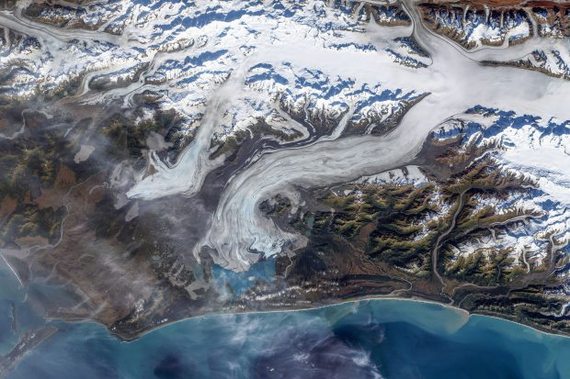Satellite data has confirmed that the amount of freshwater released into the Gulf of Alaska from streams and rivers in Alaska and northern Canada is about 1.5 times what the Mississippi River dumps into the Gulf of Mexico each year.
That astounding flow of water is from rainfalls that soak Southeast Alaska and the south side of the Alaska Range. The other half comes from the melting of snow and ice from glaciers.
Glaciologist Anthony Arendt is an author of a recent paper in which researchers used different pieces of information to determine the fresh water input to the northern Pacific from Alaska and northwest Canada. He works at the Geophysical Institute at UAF and studied data from a NASA mission that features two satellites orbiting Earth about 300 miles above our heads.
Those instruments measure gravity while racing around the planet in formation about 137 miles apart. Arendt and many other scientists have used this gravity information to calculate changes, in his case the loss of ice and snow from glaciers and massive icefields in Alaska and northern Canada. His data confirmed work done since the 1980s based on stream gauges, weather station data and computer models.
By comparison, the Mississippi River drains 31 states and two provinces. Ranked by discharge, it is the 10th largest river on the planet. The Yukon, which we tend to think of as big, is 41st.
So, the mountains and rainforests of southern Alaska are dumping a lot of water into the ocean. What does that mean?
